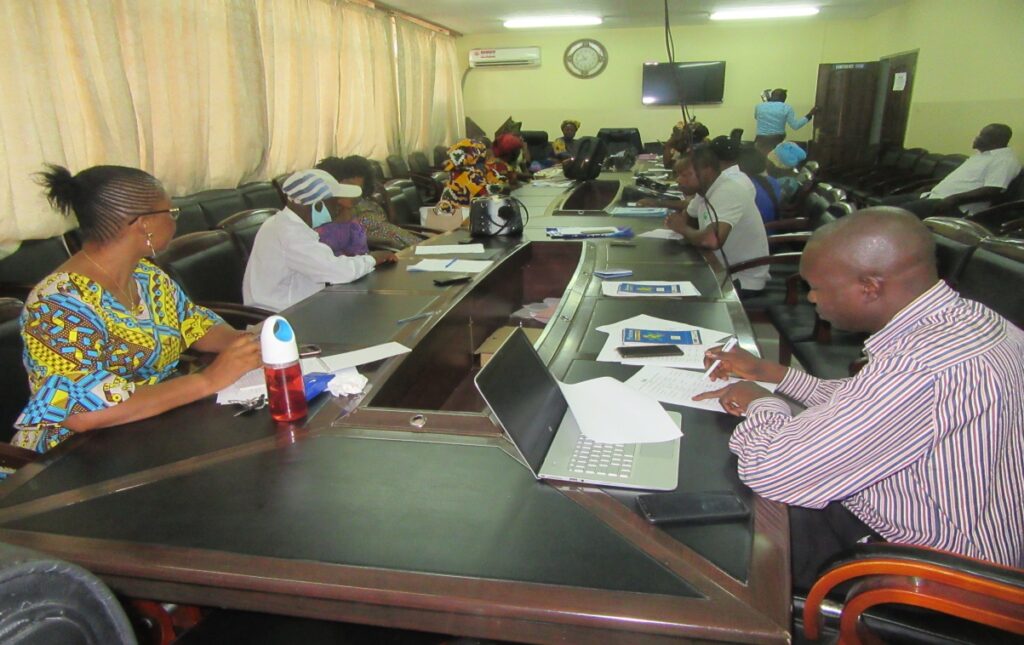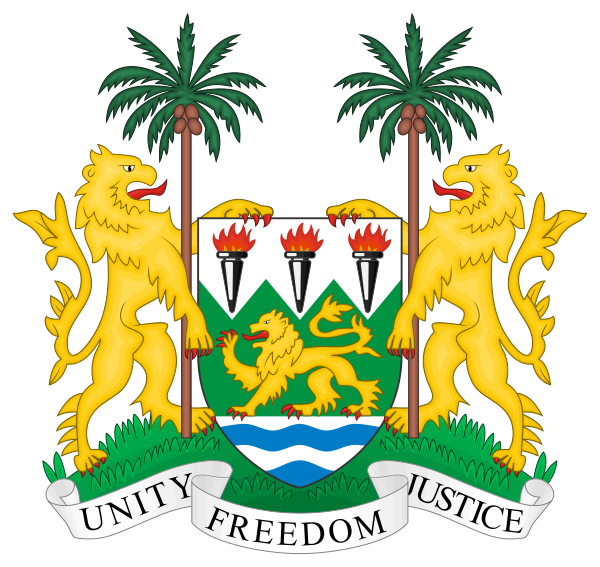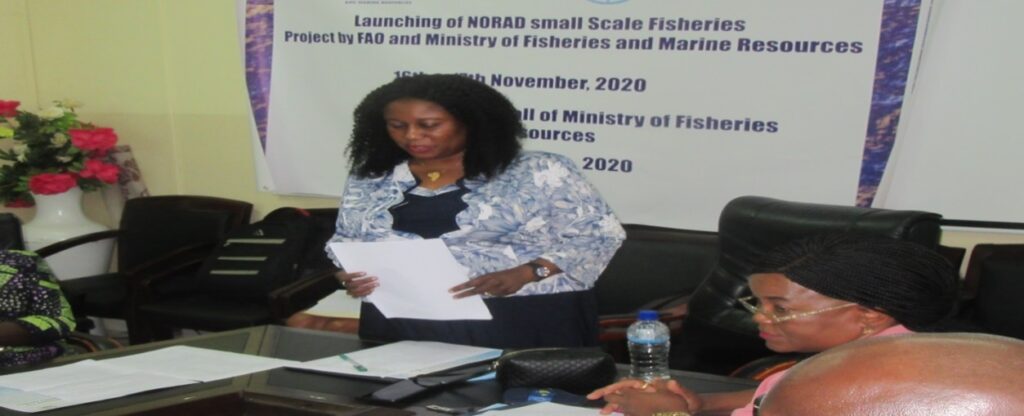
A Two- day National Inception Workshop for the Norwegian Agency for Development (NORAD) Small Scale Fisheries Project has ended at the Conference Hall of the Ministry of Fisheries and Marine Resources in Freetown. The workshop followed the signing of a project by NORAD and Food and Agriculture Organisation FAO on 5th October, 2015 to support enhancing the contribution of Small Scale Fisheries to food security and sustainable livelihood through better policies, strategies and initiatives, culminating in the signing of an agreement between FAO and the Ministry of Fisheries on the 10th March, 202O for the same project.
Oragnised by the Food and Agriculture Organisation, FAO in collaboration with the Ministry of Fisheries and Marine Resources, the workshop was attended by Senior Management Staff of the ministry of fisheries and FAO, Outstations Officers from the ministry of fisheries, representatives from the National Fishermen Consortium, Community Management Associations and Women Fish Processors from various coastal fishing communities in the country.
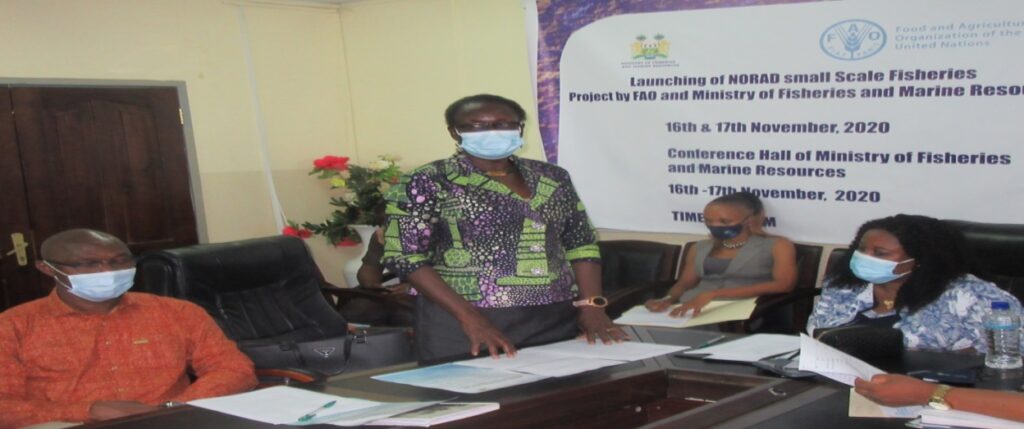
According to the National Project Co-ordinator, Sheka Kargbo, the objective of the project which targeted beneficiaries from Kambia, Portloko, Moyamba, Bonthe and PujehunDistricts is to support the social, economic and environmental transformation of the small scale fishing sectors towards its better contribution to food security and poverty reduction in Sierra Leone as a result of improved policies, strategies and initiatives. He pointed out that women in the Artisanal Fisheries sector are the most vulnerable, assuring that the project empower and address issues affecting them through Capacity Building Training Programmes for self-reliance, such as skills that would add value to their products.
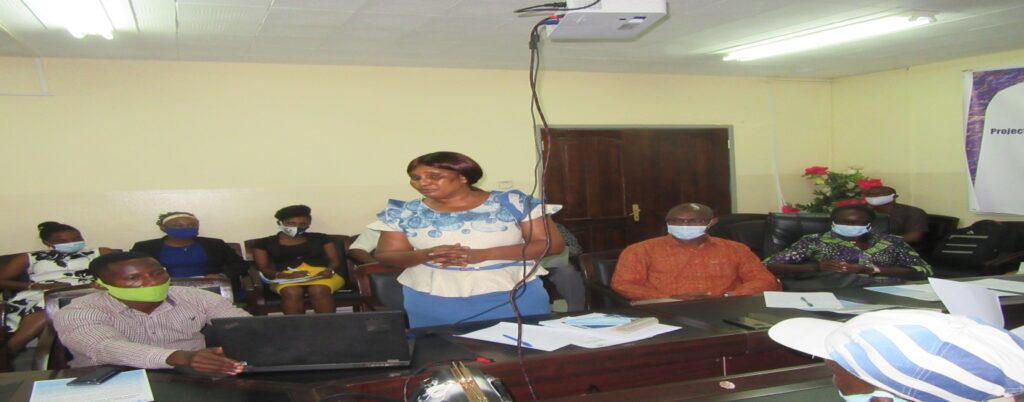
Mr. Kargbo who described the project as “very participatory”, said it will also provide logistical support to beneficiaries and ensure synergy among stakeholders, respect for rule of law, culture, gender equality and equity as well as beneficiaries’ rights and dignity.
In her Opening Address, the Minister of Fisheries and Marine Resources, Emma Kowa Jalloh, described the project as “an opportunity for women engaged in fisheries activities to add value to their products” and commended FAO for assisting her ministry to apply International Best Practices in terms of fish landing and processing as well as supporting flagship programmes such as Illegal, Unreported, Unregulated, IUU fishing, Capacity building and Aquaculture development.
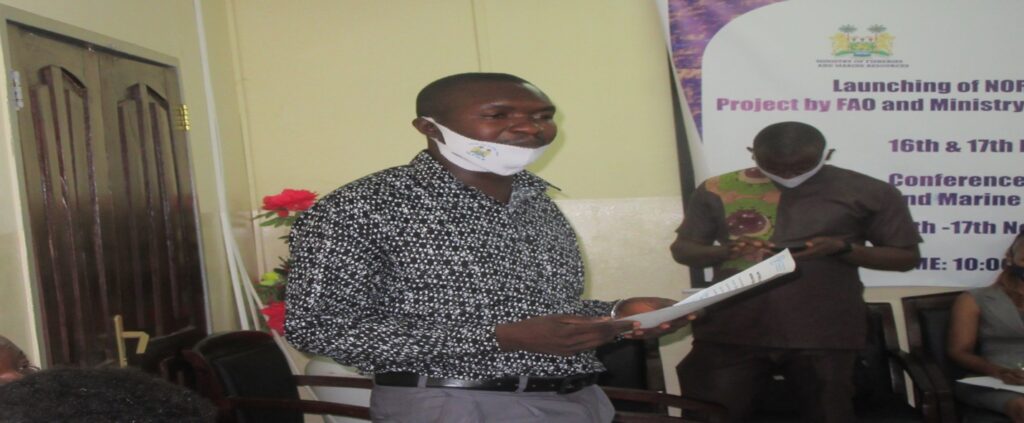
She challenged participants to make the best use of the opportunity and cascade knowledge gained to their communities. The project, the minister added will address important aspects in sector such as Fish Marketing, Processing and Handling to enable women compete with their counterparts elsewhere.
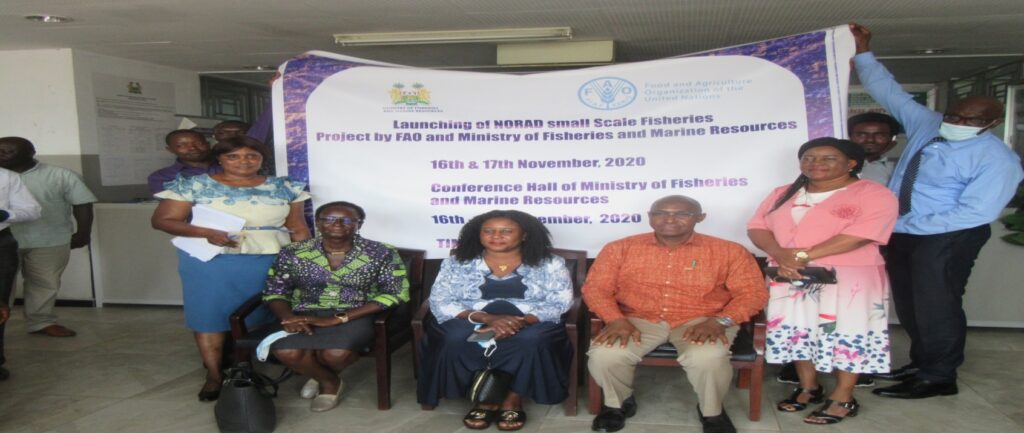
She appealed to FAO for more support, especially in the areas of Aquaculture and Illegal fishing whilst urging participants to cooperate and work assiduously to ensure the objective of the workshop is achieved. The Director of Fisheries, Kadijatu Jalloh, acknowledged the effort of FAO in complimenting the effort of the ministry over the years, especially in promoting Aquaculture development in the country.
She outlined a number of challenges facing the sector, including the lack of adequate cold rooms, improved Smoke Ovens that often leads to spoilage and waste of fisheries products and appealed for help to mitigate post-harvest losses. Madam Jalloh entreated women engaged in fisheries to organize themselves into formidable groups so as to gain more recognition and attract donors. She pledged her ministry’s support to especially Water, Sanitation and Health, (WASH) related programmes.
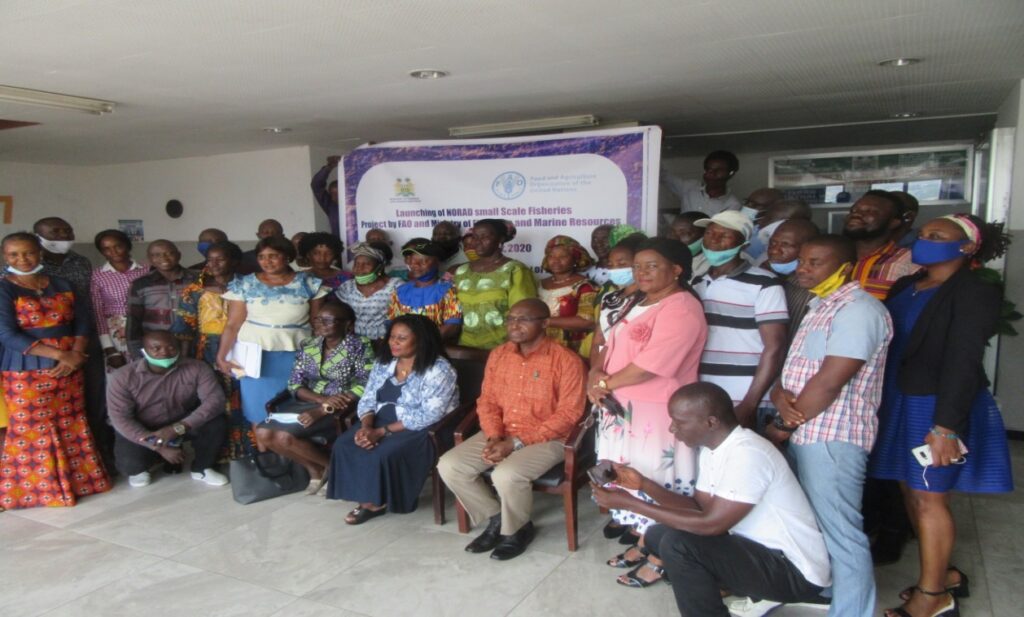
FAO Representative in Sierra Leone, Madam Nyabenyi Tito Tipo, underscored the fact that 80% of the country’s animal protein is derived from fish and fisheries products which she said makes the sector very important.
She intimated that the project will also address a number of issues, such as Baseline Study for Small Scale Fisheries Project, needs assessment for all beneficiaries in coastline communities and provide business complimentary support to five female corporative, among others and lauded the effort of the ministry of fisheries in promoting the Artisan Fisheries Sector.
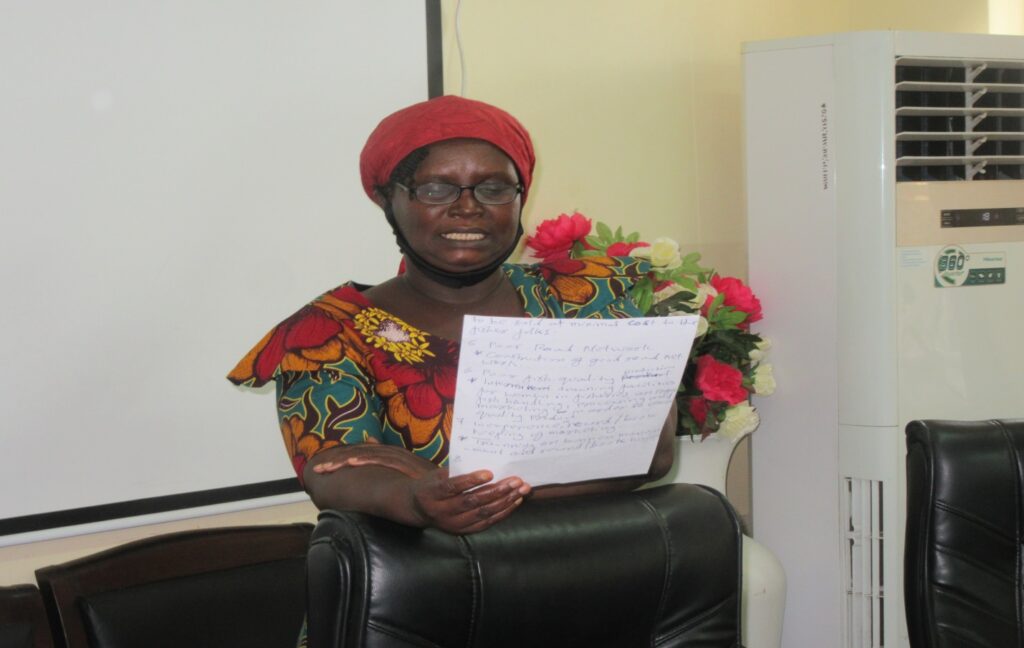
She called for more collaboration among stakeholders and pledged her organization’s continued support.
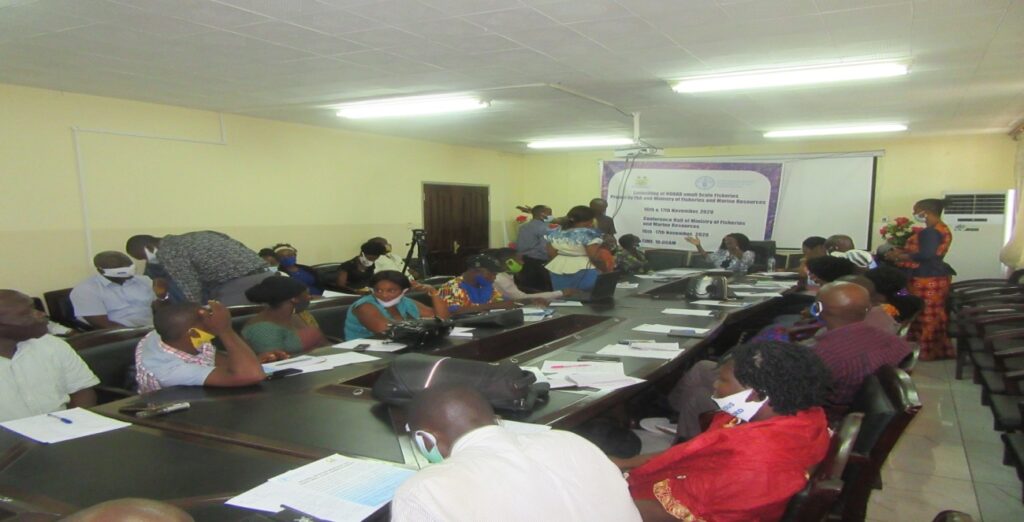
The Permanent Secretary, Ministry of Fisheries, Elizabeth Ellie who chaired the programme, expressed thanks and appreciation to FAO for its continued support to the ministry and hoped the project will be replicated in other communities for the benefit of all.
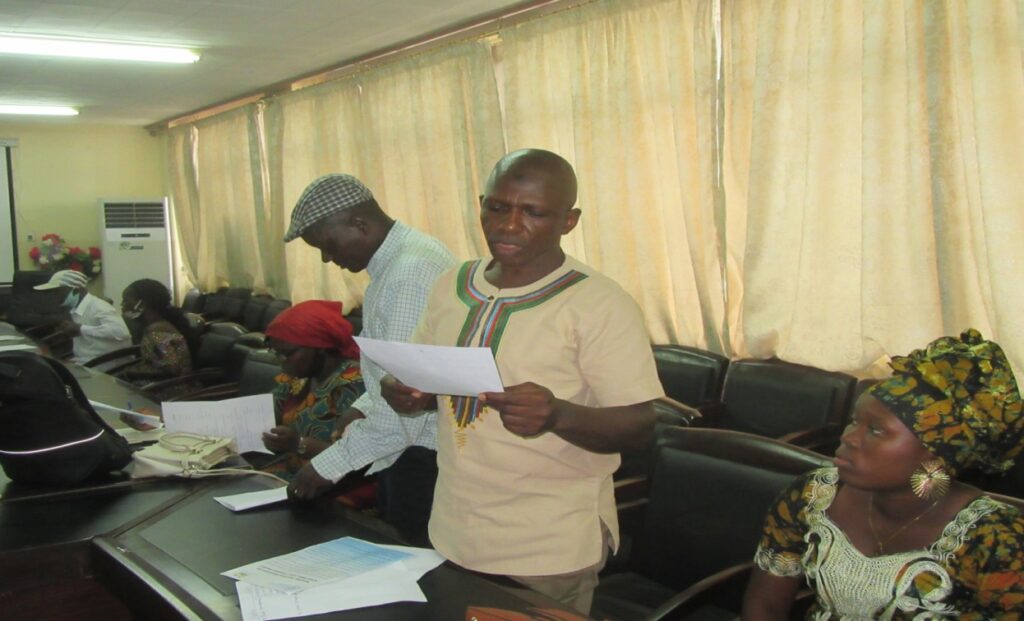
Discussions on Overview Result Framework and Work Plan, Capacity Needs of Women in Fisheries, expectations of target beneficiaries, identified collaboration and synergies and presentations by partners on experiences and lessons learned from similar projects, initiative currently on -going or in the past and possibilities of collaboration and synergy climaxed the two-day interactive workshop which ended with the presentation of a finalized Work Plan for validation by the Project Coordinator after break out group discussions and presentations by participants.
